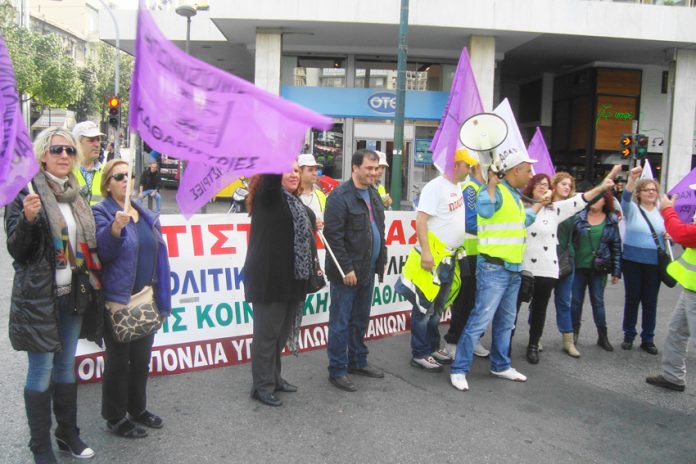
THE Eurogroup’s President Jeroen Dijsselbloem said on Tuesday that unless the Greek government implements immediately the promised ‘reforms’ – that is austerity measures – agreed to with the Eurozone, Greece could not receive financial aid.
At Monday’s Eurozone Financial Ministers’ meeting, Greek Finance Minister Yanis Varoufakis presented a document of ‘reforms’ which was rejected as very little by Dijsselbloem.
The ‘reforms’ demanded appear on the extension of the austerity accords for four months document signed by the Greek government at the end of February, an act that shocked and infuriated Greek workers who have suffered five years of savage austerity, mass unemployment and poverty.
Instead of getting rid of the austerity accords as promised at the general election in January, Greek Prime Minister Alexis Tsipras signed an extension.
The pressure on Greece piled up following the ECB’s President Mario Draghi announcement that Greece would not be able to draw from the ECB’s ‘quantitative easing programme’ which started on Monday.
Draghi demanded that the Greek government first implements the austerity reforms and then lending to the Greek banks could resume.
The ECB ‘is still holding the rope which we have around our necks,’ said Tsipras.
The Greek government is desperate for cash and is seeking to get 7bn euros which is to be made available by the troika only when reforms are implemented.
Greece has to pay some 6bn euros to creditors this month.
Last weekend, Greek Finance Minister Yanis Varoufakis said in an interview that if Greece does not receive financial aid, then a referendum or even a general election could be called on the issue of austerity accords.
The Greek government managed to pay back last week some 3bn euros to the IMF, loans and interest, through issuing so-called ‘treasury bills’ and by raiding state and public organisations’ reserves.
As a result several education projects and public services have been cancelled.
Greek government officials have been quoted in the Athens press as saying that an ‘honourable compromise’ should be reached with the EC, IMF, ECB troika creditors.
However no such compromise is available.